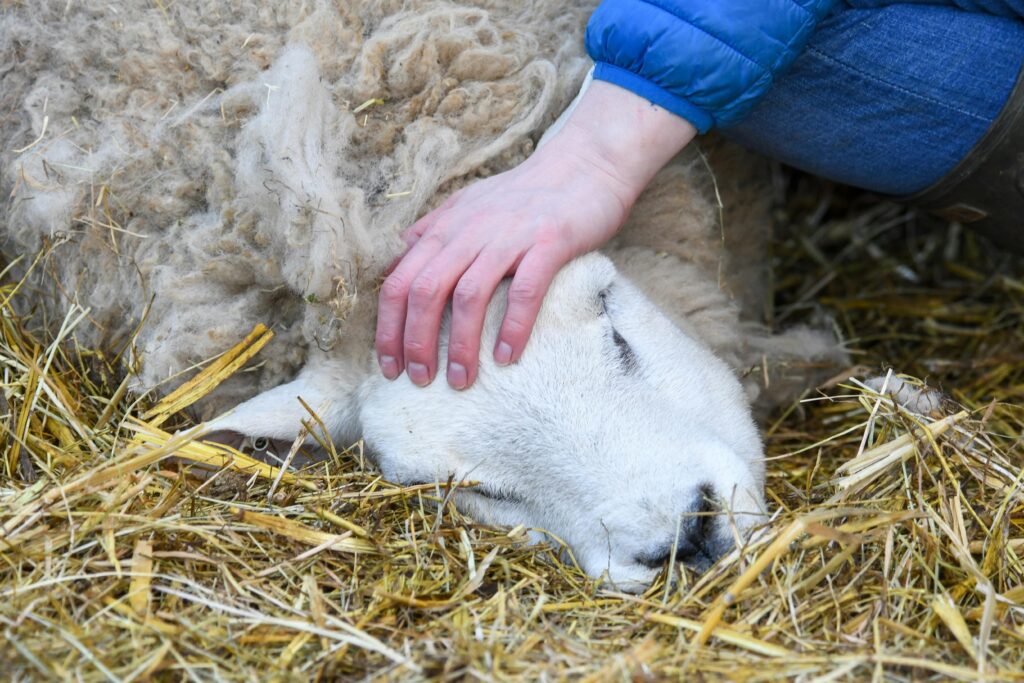Deworming is a vital component of livestock management that plays a critical role in maintaining animal health, boosting productivity, and supporting overall farm profitability. Parasites such as roundworms, tapeworms, and liver flukes can silently undermine animal health, leading to malnutrition, stunted growth, reduced fertility, and even death if left unchecked.
While it’s important to understand the general principles of deworming, consulting with animal experts and veterinarians provides invaluable guidance for creating a tailored and effective deworming plan that best suits your farm’s specific needs and conditions.
Why Deworming Is Critical for Livestock
Parasites are often an unseen and underestimated threat on farms, but their impact on livestock health can be profound. These organisms, which typically inhabit the digestive tract of animals, consume the nutrients the animals need to grow, thrive, and reproduce.
As parasites multiply, they rob livestock of essential nutrients, leading to a host of health problems. Symptoms of parasitic infections can range from mild to severe, and include diarrhea, weight loss, poor growth rates, decreased milk production, and, in extreme cases, even death. Even a mild parasitic infestation can drastically affect an animal’s performance.
For example, livestock with parasites often fail to gain weight efficiently, and their milk yield may drop. These changes may go unnoticed initially but can add up over time. Farmers may find themselves spending more on feed, veterinary care, and other resources to keep the animals healthy, without seeing the expected return in the form of better weight gain or higher milk production. Ultimately, parasitic infections lower the overall productivity of the farm, leading to reduced profitability.
The Economic Impact of Parasites on Livestock
The economic consequences of parasite infestations are considerable. Infected animals need to consume more food just to maintain their body weight, as parasites consume the nutrients meant for the animal’s growth and development. This leads to higher feed costs, which eat into the farm’s profits. Additionally, animals with parasites are less likely to be productive, meaning that farmers may not see the returns they expect from their herd or flock.
But the financial burden doesn’t stop with feed costs. If parasite infestations are left untreated or poorly managed, they can result in secondary health issues. For example, parasites can make animals more susceptible to infections or other diseases, leading to higher veterinary costs.
A poorly managed parasite load also reduces overall farm efficiency, as more time and resources are required to care for sick animals. This not only affects profitability but can also strain farm labor and equipment.
The Concern for Human Health
The implications of parasitic infestations go beyond the health of the livestock themselves. When livestock harbor parasites, there is also a potential risk to human health, especially when animals are raised for consumption. Some parasites can be transmitted to humans through the consumption of contaminated meat or animal products, posing a serious food safety concern.
For instance, certain parasites, such as Toxoplasma gondii(which causes toxoplasmosis), Trichinella (which causes trichinosis), and Taenia (tapeworms), can be passed to humans through undercooked or contaminated animal products. These parasites can cause significant health problems in people, from mild gastrointestinal issues to severe infections that affect the brain, muscles, or other vital organs.
To prevent this, it is crucial that farmers maintain effective parasite control programs, not only for the benefit of livestock health but to ensure that animal products are safe for human consumption. This means adhering to strict deworming protocols and proper food safety measures, such as monitoring withdrawal periods for deworming medications and ensuring meat is thoroughly cooked before it reaches the consumer.
Why Regular Deworming is Necessary
Deworming plays a key role in managing the risk of parasites. Regular deworming treatments ensure that any parasitic infections are kept in check, minimizing their impact on livestock health and productivity. However, effective deworming goes beyond simply administering medication. It requires a strategic, tailored approach that takes into account several factors: the type of parasites common in your area, the age and breed of your livestock, and the specific conditions of your farm.
Consulting a Veterinarian for Effective Deworming
To create an effective deworming program, farmers should consult with veterinarians. These professionals have the expertise to assess the severity of parasitic infestations and recommend the most appropriate treatments. Veterinarians can help design deworming schedules based on local parasite prevalence, climate, and farming practices.
For example, certain types of worms may be more common during specific seasons or in specific regions, and understanding this can help determine the best time to administer deworming medications.
Veterinarians can also advise on the best deworming products for your livestock. Not all dewormers are created equal, and the wrong treatment could lead to resistance or ineffective results.
Veterinarians can guide you toward the right dewormers, helping to avoid costly mistakes and ensuring that the livestock get the maximum benefit from the treatments. By taking a proactive approach to deworming and working closely with a veterinarian, farmers can keep parasites at bay, prevent costly health issues, and ensure their livestock remains productive and healthy.
Best Practices for Effective Deworming
Intense Deworming Prevention: Building Healthier Livestock with Proactive Measures
